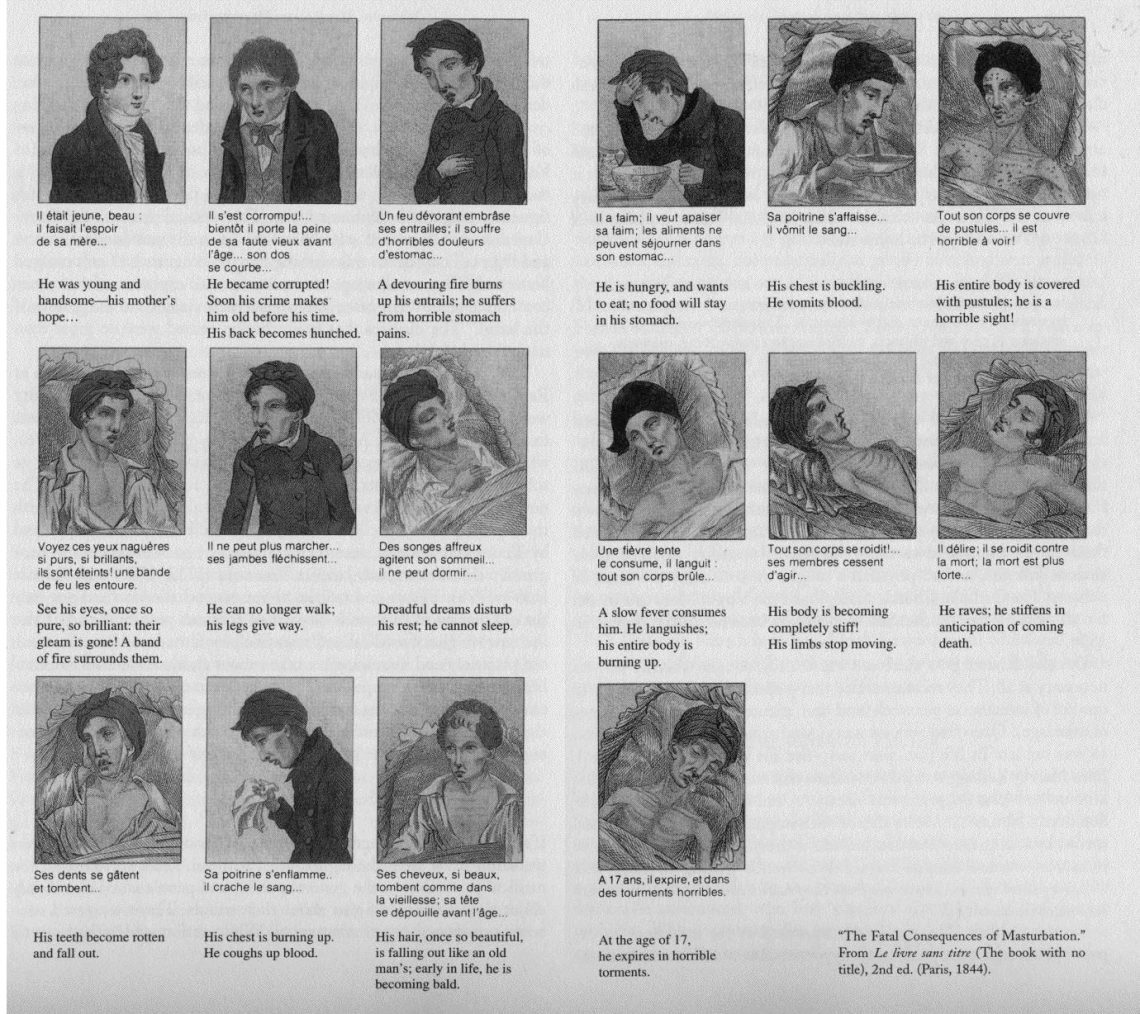Throughout history, masturbation has been shamed in certain corners of society. Men who masturbated were considered to be sickly. Women who masturbated were believed to have memory loss, be flat chested, fickle, emaciated, and irritable. Check out this chart on what 19th century French scientists believed what happened to people who masturbated too frequently. Masturbators could be pointed out by the trained eye because they were believed to be unclean, tired, and acne-ridden. 
The atmosphere about masturbators in 19th Century America was no different. In most circles, masturbation was considered a sinful scourge or the act of a mentally unstable person. In 1876 Dr. John Harvey Kellogg was the lead physician at Battle Creek Sanitarium in Michigan. According to Planned Parenthood’s history of masturbation, “Kellogg cautioned readers that masturbating was the most dangerous of sexual behaviors,” adding that “the causes of masturbation included idleness, abnormal sexual passions, gluttony, sedentary employment, and exciting and irritating food.” Additionally, “Kellogg’s recommendations for preventing masturbation in children included serving cold instead of hot cereals for breakfast, bandaging their genitals, and/or tying their hands to the bedposts at night.” People who were caught masturbating or who were checked in to Battle Creek by concerned parents were subject to torture, under the contemporary notion that suppressing the urge to masturbate was both possible and healthy. Kellogg’s treatments for masturbators included circumcising a male without anesthesia (so he’d remember the pain and be “scarred” for life), dropping acid on the clitori of females, sitting them in vibrating chairs, using electrotherapy, and designing corn flakes. Yes, you read that last one correctly. This classic American cereal was designed to be pleasureless nutrition for children because sweet, spicy, or warm food was believed to cause sexual corruption and bring about an insatiable urge to masturbate. “A man that lives on pork, fine-flour bread, rich pies and cakes, and condiments, drinks tea and coffee, and uses tobacco, might as well try to fly as to be chaste in thought,” Kellogg once said. Kellogg’s brother wanted to add sugar to the cereal and sell it, but Kellogg rebuffed him, claiming that sugar was sinful. Kelloggs brother made his own marketable version anyways, and the rest is history.
References

